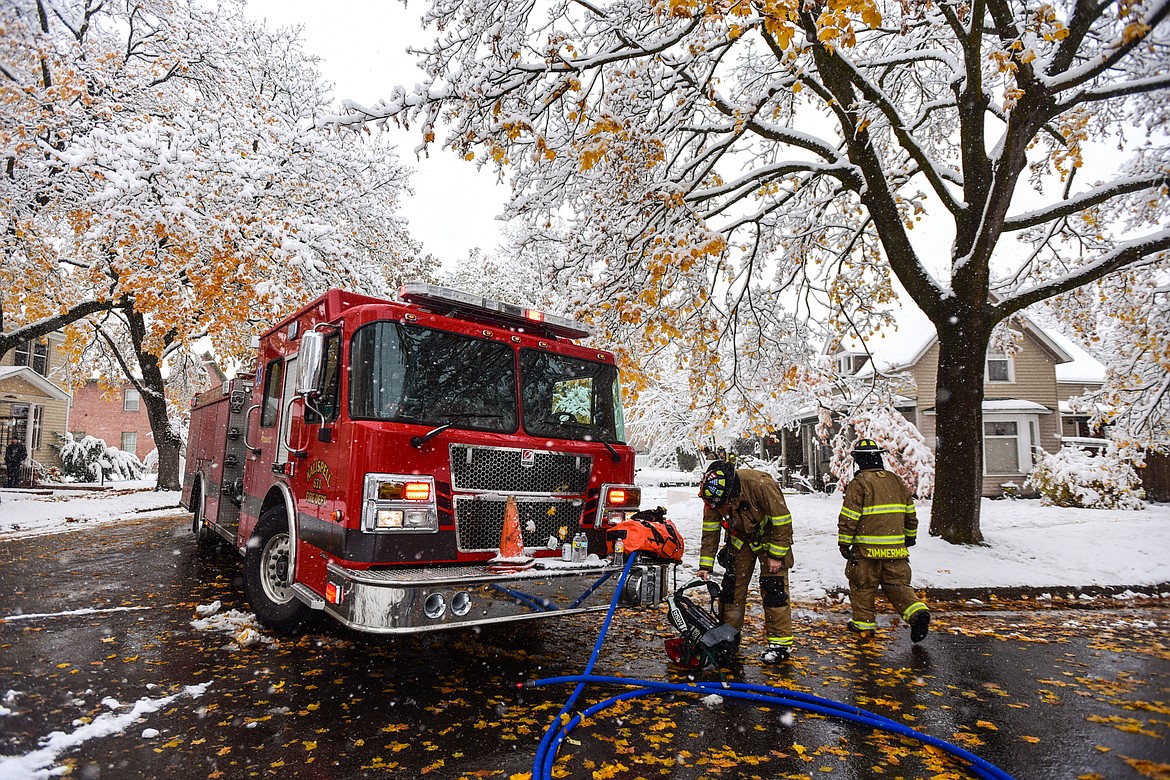Kalispell City Council vets public education campaign for emergency responder levy request
Kalispell City Council on Monday reviewed the municipality’s forthcoming public education campaign for an emergency responder levy request going before voters in March.
Council in November voted to put the levy proposal up to a vote after independent audits found the city’s Fire and Police departments short-staffed, with a response time lagging four minutes behind the national average.
Mayor Mark Johnson said that city services could no longer keep up with growth without added revenue.
“We just don’t have the revenue sources to pay for it,” he said.
Leading a presentation meant to underscore the city’s overloaded police, fire and emergency medical agencies, City Manager Doug Russell pointed to data. Law enforcement, for example, has seen a 22% increase in citizen calls and an 87% increase in violent crime since 2018, he said.
“As we look to the future, this need is not going to go away,” Russell said. “We want people educated, we want people to be informed and vote.”
If passed by voters, the proposed 60.9 mill annual levy is expected to raise $4.6 million in its first year. A homeowner with property valued at $450,000 can expect to pay an additional $369 per year, according to city documents.
The dollars are expected to provide Kalispell with additional first responders, a new fire station on Farm to Market Road on the west side of town, and a new ambulance and fire engine.
For voters questioning why city growth isn’t providing enough revenue to expand services, Russell said that state law only allows tax increases on existing properties at half the rate of inflation, so property tax revenue has kept steady over the past five years while the cost of employees and equipment has grown.
“One of the things this makes really evident [is that] because of the tax structure in Montana — half the average three year rate of inflation — if you’re not growing as a community, over time you offer less and less services,” Johnson said.
“So this really brings that home to roost,” he added.
COUNCIL ALSO explored potential uses of new state funding for city maintenance brought about by the State-Local Infrastructure Partnership Act of 2023, or House Bill 355. Kalispell is eligible for $313,674 for infrastructure repair work, including on water systems, roads, bridges and public facilities, but would need to provide a 25% match for any projects undertaken with the funds.
As part of the consideration of the funding, staff presented Council with a proposal to remove lead pipes from the city’s water system as an option, one that is already underway though still in the early stages.
Public Works Director Susie Turner outlined the process for Council and said that city staff had inventoried half of about 20,000 potential lead valves in the underground water service line called curb stops. Her department hopes to complete the inventory by April, she said.
The next step is to dig them up from roads, driveways and beneath private property.
“Where we are with lead removal, it’s a little bit messy,” Russell acknowledged, suggesting that a portion of the funds could aid the inventory process.
The presentation drew concerned questions from several councilors about the extent of the operation and its timeframe.
Councilor Chad Graham asked whether water pipes that display currently approved materials on the surface must still be examined belowground, which Turner confirmed to be the case.
“If we know what the material is from the curb stop to the house, we still have to prove what it is from the curb stop to the main,” she said.
Echoing Russell, she described that process as “the messy part.”
“How do you know if they’re lead?” Councilor Jessica Dahlman asked. “Visually?”
“Yes,” Turner replied. “We have a lot of institutional knowledge about this.”
Councilor Sam Nunnally broached the question of resistance: “What if someone says they don’t want you digging on their property?”
“That would make an interesting court case,” said Councilor Sid Daoud.
“We would win,” Russell told them.
The topic is expected to reemerge at future meetings with opportunity for public comment.
“This is a peek behind the curtain,” Russell said. “This one is early on, but it may be ripe for use of [State-Local Infrastructure Partnership Act] funds.”
Reporter Carl Foster can be reached at 758-4407 or cfoster@dailyinterlake.com.


